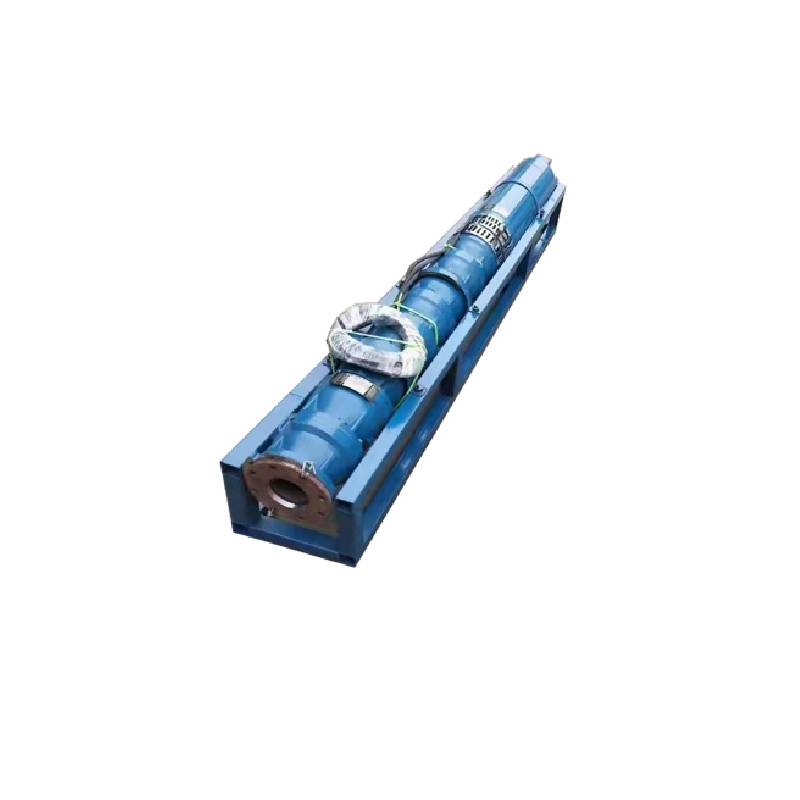Aug . 13, 2024 11:22 Back to list
Efficient Submersible Well Pumps for Optimal Water Extraction and Sustainable Resource Management
Submersible Well Pumps An Overview
Submersible well pumps are essential components in modern water supply systems, ensuring efficient and reliable water extraction from deep underground sources. These pumps are designed to operate underwater, making them particularly suitable for applications in residential, agricultural, and industrial settings. This article explores the working principles, advantages, and applications of submersible well pumps, highlighting their critical role in water management.
Working Principles of Submersible Well Pumps
Submersible well pumps consist of a motor and a pump that operate together to lift water from deep wells. The motor is hermetically sealed to prevent water from entering, allowing it to function efficiently underwater. The pump's impeller is driven by the motor, generating centrifugal force that pushes water through the pump and up the discharge pipe to the surface.
When installed, the submersible pump is immersed below the water level in a well, typically at depths ranging from 25 feet to several hundred feet. This design eliminates the need for a suction line, allowing for a more efficient transfer of water. The pump operates by creating a pressure difference that pulls water into the pump's inlet and pushes it upwards, making it ideal for deep well applications.
Advantages of Submersible Well Pumps
One of the main advantages of submersible well pumps is their efficiency
. By operating underwater, these pumps minimize the risk of cavitation, a phenomenon that can reduce performance and lifespan. Additionally, the compact design of submersible pumps allows for installation in narrow boreholes, making them a great option where space is limited.Moreover, submersible pumps are generally more energy-efficient than other types of pumps. They are designed to operate in conjunction with variable frequency drives, which can adjust the pump's speed according to demand, resulting in lower energy consumption and operating costs.
submersible well pumps

Another benefit is their durability. Constructed from corrosion-resistant materials such as stainless steel or thermoplastic, submersible pumps can withstand harsh conditions, including exposure to minerals and chemicals found in groundwater. This durability ensures a longer lifespan and reduced maintenance needs.
Applications of Submersible Well Pumps
Submersible well pumps have a wide range of applications. In residential settings, they provide water supply for households by extracting groundwater from wells. They are particularly beneficial in areas where surface water is scarce or unreliable.
In agriculture, submersible pumps are used for irrigation purposes, ensuring that crops receive adequate water supply even in arid conditions. These pumps enable farmers to access groundwater efficiently, contributing to improved yields and sustainable farming practices.
In industrial applications, submersible well pumps play a vital role in dewatering, wastewater treatment, and various production processes. Their ability to handle large volumes of water makes them essential for industries that require reliable water sources.
Conclusion
In conclusion, submersible well pumps are indispensable tools in modern water management, providing efficient and sustainable solutions for various water supply needs. Their unique design and operational advantages make them suitable for a wide array of applications, from domestic use to agricultural and industrial purposes. As the demand for reliable and efficient water extraction continues to grow, submersible well pumps will remain a vital component in ensuring access to clean and safe water for communities around the world.
-
Submersible Water Pump: The Efficient 'Power Pioneer' of the Underwater World
NewsJul.01,2025
-
Submersible Pond Pump: The Hidden Guardian of Water Landscape Ecology
NewsJul.01,2025
-
Stainless Well Pump: A Reliable and Durable Pumping Main Force
NewsJul.01,2025
-
Stainless Steel Submersible Pump: An Efficient and Versatile Tool for Underwater Operations
NewsJul.01,2025
-
Deep Well Submersible Pump: An Efficient 'Sucker' of Groundwater Sources
NewsJul.01,2025
-
Deep Water Well Pump: An Efficient 'Sucker' of Groundwater Sources
NewsJul.01,2025
-
 Submersible Water Pump: The Efficient 'Power Pioneer' of the Underwater WorldIn the field of hydraulic equipment, the Submersible Water Pump has become the core equipment for underwater operations and water resource transportation due to its unique design and excellent performance.Detail
Submersible Water Pump: The Efficient 'Power Pioneer' of the Underwater WorldIn the field of hydraulic equipment, the Submersible Water Pump has become the core equipment for underwater operations and water resource transportation due to its unique design and excellent performance.Detail -
 Submersible Pond Pump: The Hidden Guardian of Water Landscape EcologyIn courtyard landscapes, ecological ponds, and even small-scale water conservancy projects, there is a silent yet indispensable equipment - the Submersible Pond Pump.Detail
Submersible Pond Pump: The Hidden Guardian of Water Landscape EcologyIn courtyard landscapes, ecological ponds, and even small-scale water conservancy projects, there is a silent yet indispensable equipment - the Submersible Pond Pump.Detail -
 Stainless Well Pump: A Reliable and Durable Pumping Main ForceIn the field of water resource transportation, Stainless Well Pump has become the core equipment for various pumping scenarios with its excellent performance and reliable quality.Detail
Stainless Well Pump: A Reliable and Durable Pumping Main ForceIn the field of water resource transportation, Stainless Well Pump has become the core equipment for various pumping scenarios with its excellent performance and reliable quality.Detail
